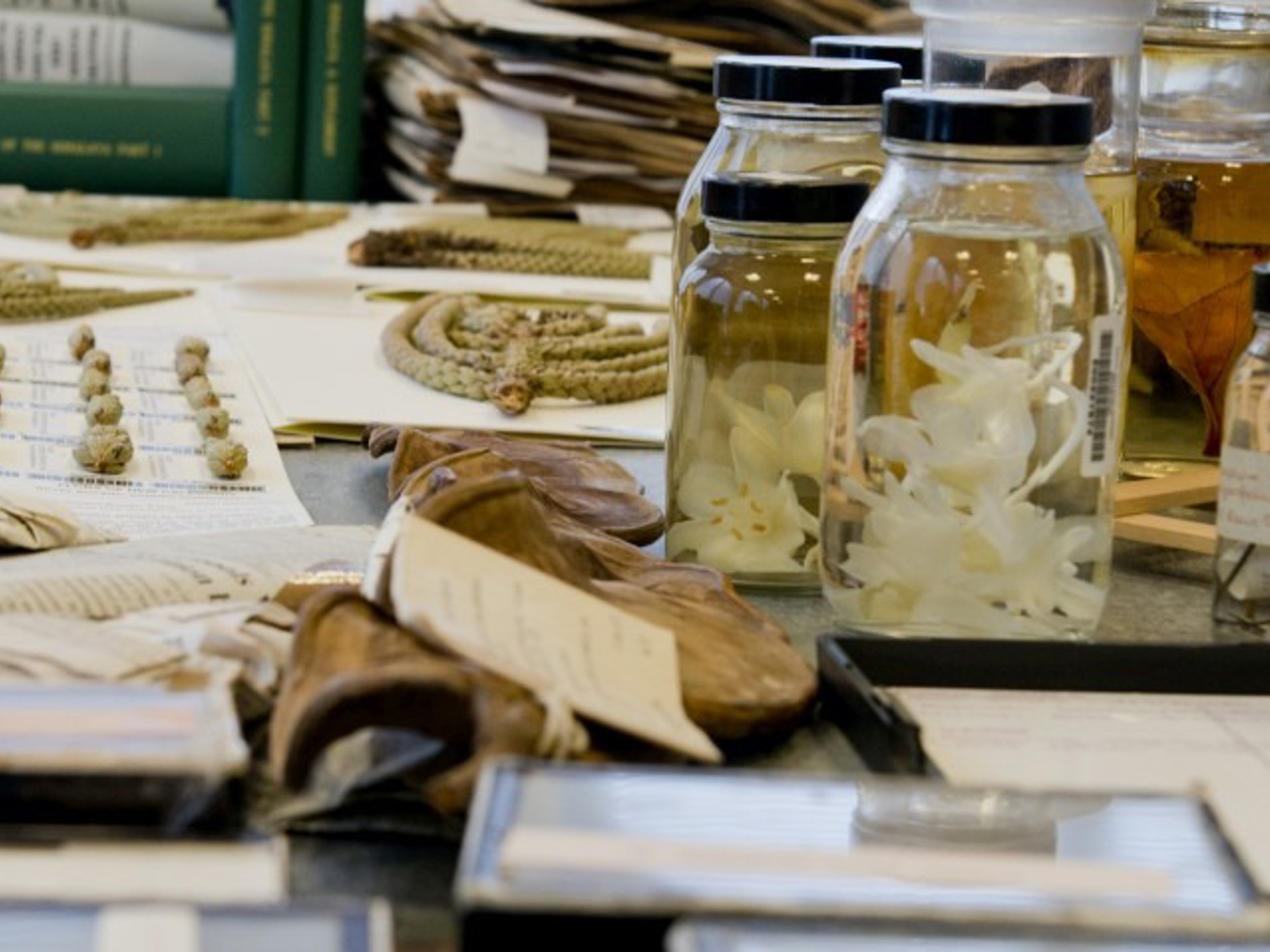
Former Students
Read what former students say about this course
Students Bios
Steven Sylvester
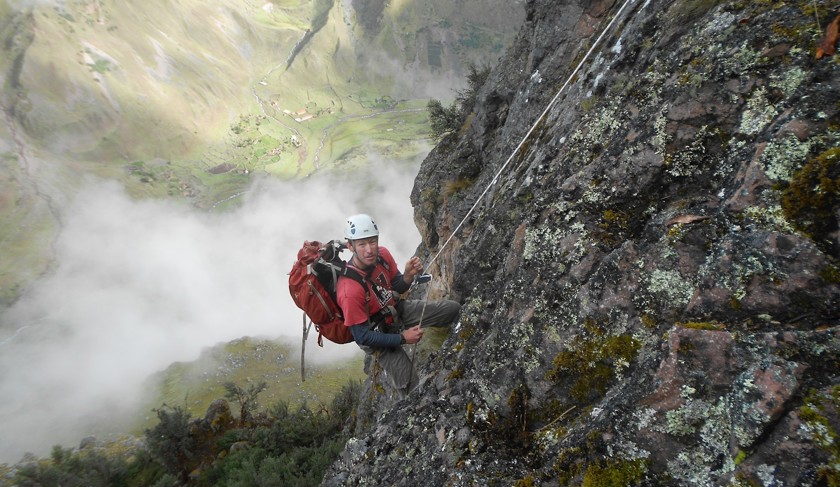
It goes without saying that RBGE's masters course is probably the best of its kind across the globe, with expert tuition from world-class specialists amidst a friendly and nurturing working environment.
The skills gained from this course were fundamental in my doctoral and postdoctoral research, where I combined taxonomic and ecological research with mountaineering skills to yield fascinating results, including the discovery of undescribed ecosystems in the Peruvian Andes dominated by new species to science. I am now continuing this exploratory research in the Colombian Andes, Himalaya, and Tibetan Plateau from my base in Nanjing, China, while continuing to pass on my passion and skills, a large part of which were gained during the MSc, to the next generation of plant taxonomists.
Mathew Rees
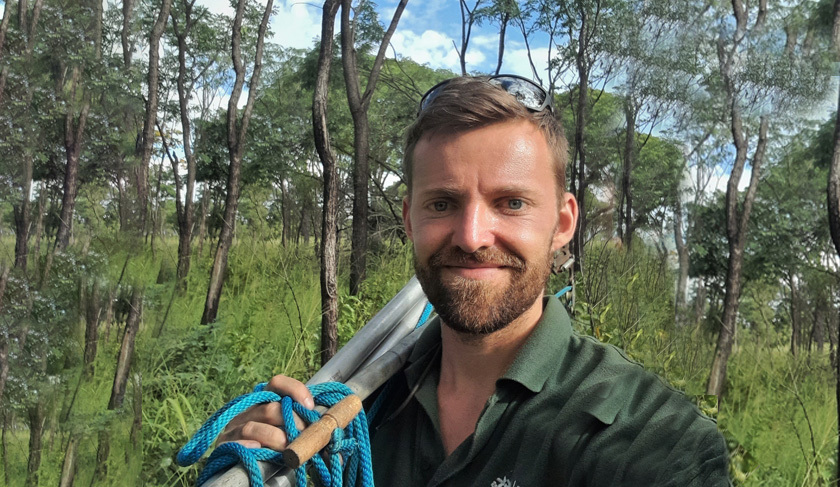
I will always remember the first time I walked through the Science Building doors of RBGE, back in September 2018. I had come to see the final presentations of the current year MSc students. The idea that this would be me one year from now seemed terrifying. The presentations were fantastic. Botany in all its beauty.
From there on, I can honestly say this was one of the best years of my life. The lecturers were passionate, the collections were exquisite, and all set in one of the best cities in the world. Oh yes, and the scots can down a drink or two.
For someone who came from the world of horticulture and who had never really touched a computer before, it was amazing to see how much progress one can achieve in a year. I ended up doing my dissertation on the taxonomy of Brazil’s national tree, using a tripartite combination of morphometrics, phylogenomics and ecology to figure out patterns of diversity in this endangered species. The skills and knowledge I gained really opened some doors for me. I’m now in the second year of my PhD at the University of Edinburgh, where my research focuses on transitions between forests and savannas in Africa. I get to travel to unexplored regions of the world and look at cool plants. What else could you want?
Bandana Shakya
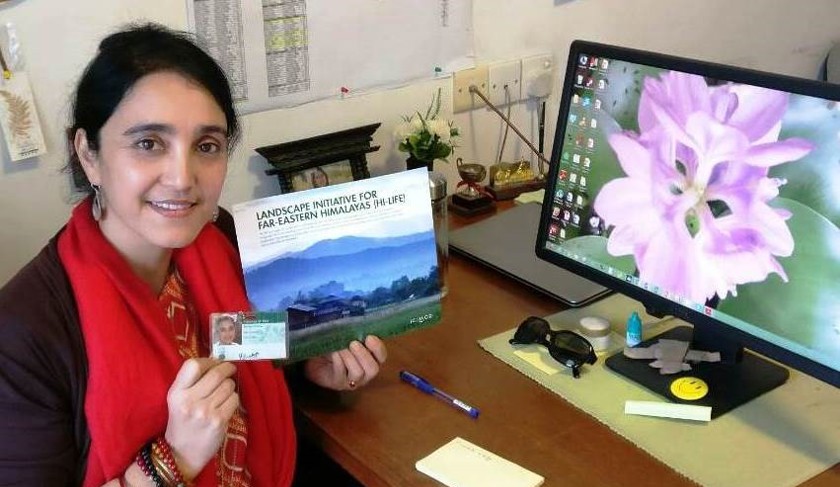
I am currently working at ICIMOD (International Centre for Integrated Mountain Development), an Intergovernmental organization headquartered in Kathmandu, Nepal. I coordinate a transboundary Landscape Initiative for Far-Eastern Himalayas (HI-LIFE) - a regional conservation and development interventions between China, India and Myanmar.
The MSc Course has been instrumental in my professional journey, particularly in getting a holistic understanding from dynamics of plant diversity and evolution to their conservation and management within a larger landscapes. There are also many beyond the academics skills sowed during those years that have enabled me to achieve my professional goals so far. The course brings back fond memories- Belize field trip (amazing hands-on learning), Michelle’s small yet well-organized molecular lab (efficient use of resources), the Herbarium (diversity and details), lectures from classifications to cladistics, Tulbaghia experiment, designer pollens under SEM, mentoring sessions with Dr. Alexander Crinan, my research in Systematics of Kerymonia with Mark and Michael, the 24 hours access to facilities for students (trust and responsibility- I still have my permanent pass), and many more!. I learn that the course has evolved over the years with newer tools and techniques making it more dynamic and informative.
Felix F Merklinger
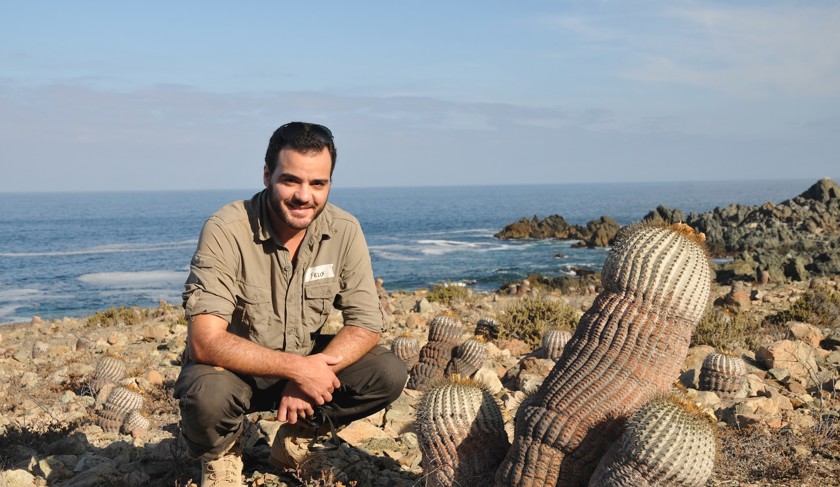
German, moved to the UK in 2004. Tropical plant biologist with a horticultural background.
Worked and studied at RBG, Kew from 2005 to 2014 (Kew Diploma). Between 2010-2011 I studied on the MSc in Edinburgh.
After the MSc, I worked for three years in West and Central Africa as part of a consultancy team under the banner of RBG, Kew. From there I moved to the Singapore Botanic Gardens where I headed the palm and cycad collections (Palm Valley and Evolution Garden).
Currently, I am studying toward my PhD on plant population genetics on four plant genera in the Atacama Desert, Chile, within a multidisciplinary project funded by the German Science Foundation, called “Earth-Evolution at the Dry Limit” (University of Bonn and University of Cologne).
The course in Edinburgh was an excellent course: It was taught at a very broad level by some of the best people in their field; from plant and fungi identification to genetics and biogeography. Being a course with international attendance, one could build networks across the globe, that I benefit from to this day. I would (and have) recommend this course to anyone interested in plants and biodiversity!
Jill Harrison
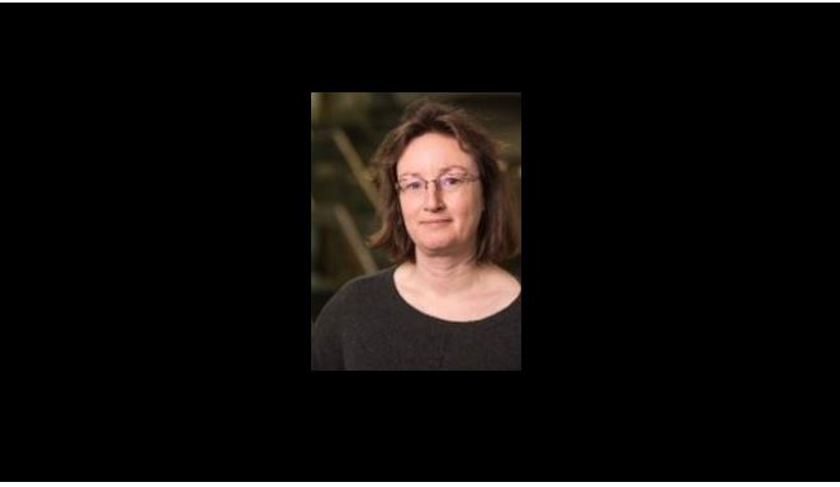
- 2015-present Royal Society University Research Fellow, now Senior Lecturer School of Biological Sciences, University of Bristol.
- 2010- 2015 Royal Society University Research Fellow and Gatsby Research Fellow Department of Plant Sciences, University of Cambridge
- Associate Lecturer Newnham College, University of Cambridge.
- 2008-2009 Browne Research Fellow The Queen’s College, Oxford;
- 2002-2008 Post-Doctoral Research Associate Plant Sciences Department, University of Oxford.
- 1999-2002 Doctorate in Evolutionary Developmental Genetics Sainsbury Ph.D. student, University of Edinburgh.
- 1997-1998 Masters in Plant Biodiversity and Taxonomy University of Edinburgh and Royal Botanic Garden, Edinburgh (RBGE).
I became interested in plant biodiversity when I was a student at the University of St Andrews. I joined a FRONTIER expedition to Northern Vietnam to survey the biodiversity of Ba Be National Park for conservation prioritization by the Vietnamese government and was frustrated that we were unable to identify many of the plants, and that my university course included little content about plants. I worked as a technician for a year in a mouse molecular biology lab after finishing my degree and raised the funds to enroll in the MSc course thanks to the Friends of the RBGE, The Charity of Thomas Dawson and the St. Mary Magdalen Non-ecclesiastical Charities. My interest in conservation and ecology changed during the Masters programme, and I found myself well placed to apply for funding to do an evo-devo PhD involving application of my molecular skills to questions about how plant biodiversity can arise during evolution. During my PhD I read about Walter Zimmermann’s Telome Theory of leaf evolution, which had been criticized as untestable. Since that time my research has aimed to test and develop Zimmermann’s ideas using evo-devo approaches, and I particularly want to understand how vascular plants originated. My research group’s recent findings demonstrate that genes involved in meristem function have similar roles in bryophytes and flowering plants, and I am now establishing a pipeline to translate our new insights into wheat to improve yield, a key priority of UK research councils.
The background in plant biodiversity I gained from the RBGE MSc gives me an unusual position in the UK universities’ plant science community. I greatly value continued contact with friends and colleagues I met through the MSc course, and find that my training stands me well for my own teaching in plant biodiversity and evolution at the University of Bristol.
Neil Brummit
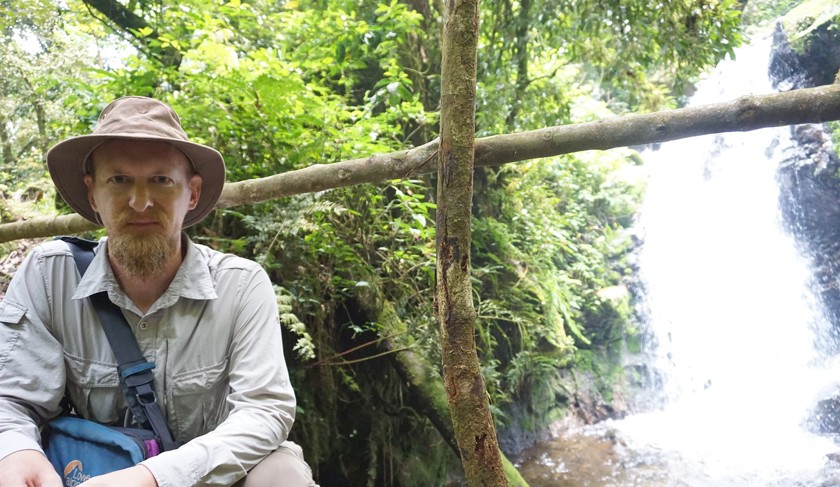
I did the MSc course 1997-98 – 20 years ago now! Mark Hughes and Max Coleman were also MSc students there at the same time. I came after 2 years volunteering at Kew, not sure if I really wanted to go into botany or not. After my year in Edinburgh, and following another year (partially) employed at Kew, I undertook a PhD registered at the University of Edinburgh utilising a large database of plant distribution records that I had compiled while volunteering at Kew, and while based down at Kew in the latter stages of my PhD then took a job there during the long writing up process as by that time my funding was running out. This led to a post-doc at Kew that was later made permanent, before I moved to my current post at the Natural History Museum in 2010, where I run a project assessing and monitoring the status of plant diversity worldwide, and the drivers and determinants of global patterns of plant diversity.
I have many fond memories of my time as an MSc student and made a number of friends for life both amongst the students and the staff. I would say that my year studying in Edinburgh has been the single most important year of my career in botany to date. It gave me the confidence and determination to pursue the career I have had so far.
Michael Pirie
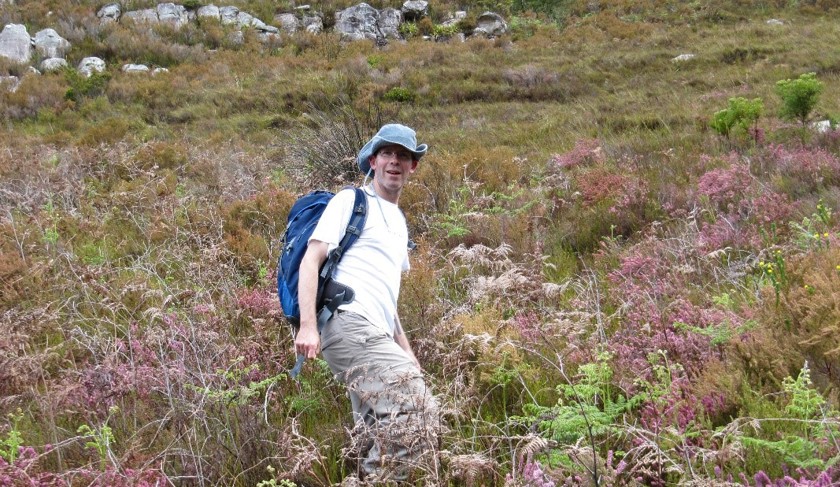
I was on the course in 1999/2000, and it doesn't seem like I have many even halfway sensible (analogue) photos to contribute from way back then. There must be a box lurking somewhere, but after several international moves I can't necessarily find such things when I want to...
My recollections of the course were of this intense tag-team played by all the specialists in the gardens, at the time herded together then by the lovely Stephan Helfer, one after the other bombarding our brains to overload, punctuated by the wit and wisdom of the wonderful Philip Smith. My project with Toby Pennington and Bente Klitgaard (down in Kew) - phylogeny, biogeography, taxonomy of a small Neotropical legume genus - set me up with ideal background for my subsequent PhD. All thoroughly inspiring, and certainly a springboard into a botanical career.
A short bio: I went straight from the course to Utrecht in 2000 for my PhD (with Lars Chatrou and Paul Maas on systematics and evolution of Annonaceae), toured through scenic postdocs in Zurich (danthonioid grasses with Peter Linder) and Stellenbosch in South Africa (Erica with Dirk Bellstedt and Ted Oliver), ending up here at the Johannes Gutenberg-Universität in 2013. Next year I'm moving to a permanent position as Associate Prof. at the University Museum of Bergen, Norway, including taking on scientific responsibility for the Arboretum with it's enormous Rhododendron collection. That feels like a good excuse to visit the Botanics again in the near future!
Botanics Recommends
-
Explore our range of unique gifts and more. Every purchase supports the Garden.
-
Explore our unique venues, suitable for every occasion
-
Discover a range of books inspired by the RBGE's work and collections
-
Cultivate your curiosity with our programme of courses for all ages and interests.
